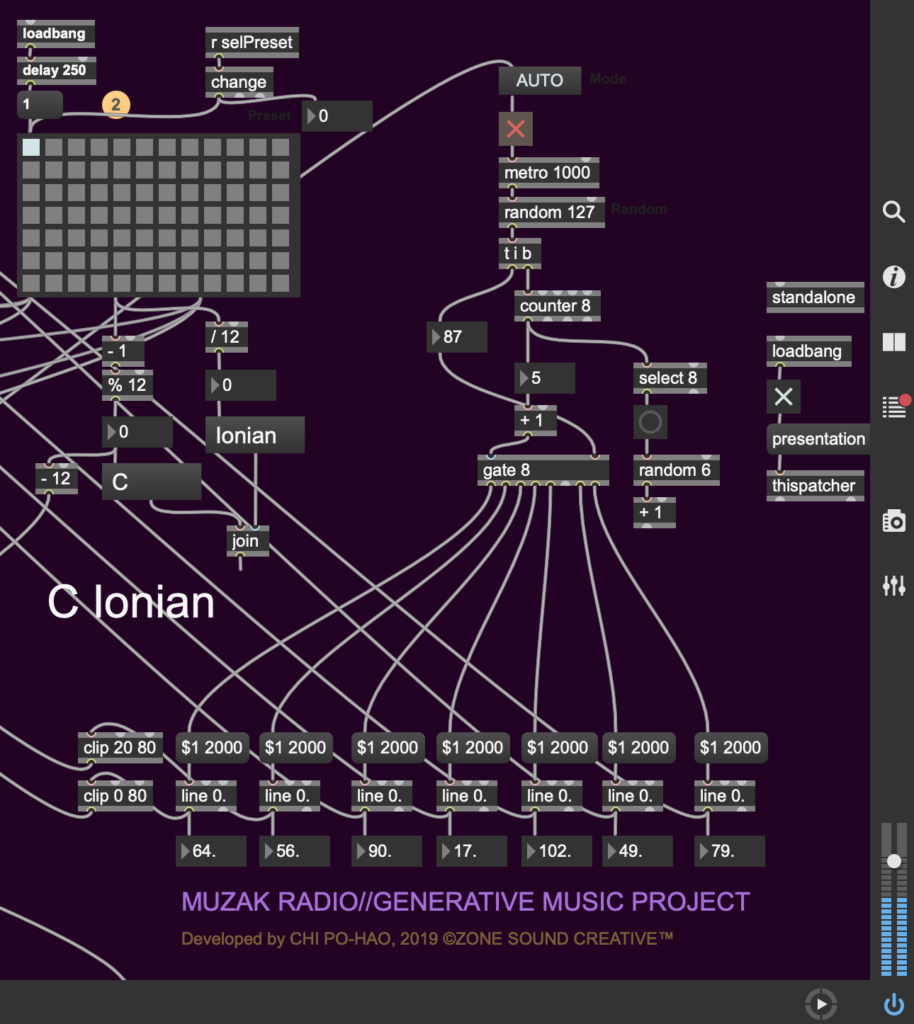Generative music system, 2018
![]()
With the development of creative technologies, music-making, or so-called composing, computer-assisted randomness and algorithm can be achieved instead of writing melodies out of one’s head. “Composing” is no longer just about conceiving the music itself, but also about designing a “system that makes music.” The Oxford English Dictionary defines a “system” as “a regular framework or method” in which a set of units follows a sequence of designed principles or steps.
“Elevator Music Generator” is a generative music project based on Max/MSP programming. It continues the experiments of contemporary composers such as Steve Reich and Brian Eno, using digital tools to create evolving content. With its archival and on-demand playback capabilities, online radio had changed the unrepeatable moment listeners used to meet a voice, a thought, a discussion when they listened to a radio program. “Muzak” is often used as a term for most background music forms, regardless of the music source, and may also be known as “elevator music.” This project combines both of the concepts above, creating musical pieces in the form of “software.” The system consists of an auto-sequencer and a crawler program that searches audio files on the web with given keywords while adjusting its parameters automatically over time. Once started, the system will continue to operate independently, never repeating itself under preset rules, producing similar but not identical transitions.

Screenshot of the program.
Rules of the system
From the first day of each week (Sunday), the daily order is Ionian (Major Scale), Dorian, Phrygian, Lydian, Mixolydian, Aeolian (Natural minor), and Locrian scales. The daily changes at different times of the day start from 0:00, then the root note is C at 0:00 of the circle of fifths, C#/Db at 1:00, D at 2:00, D#/Eb at 3:00, and so on. For example, in the 4 o’clock interval (4-5 o’clock) on Monday, the pitch that will appear in the music system is the Dorian scale with the root note E. At 0:00 am and 12:00 noon, the music’s speed gradually accelerates from 0:00 am (from 60 BPM) to noon (the fastest speed is 120 BPM), and then gradually decreases from there.
